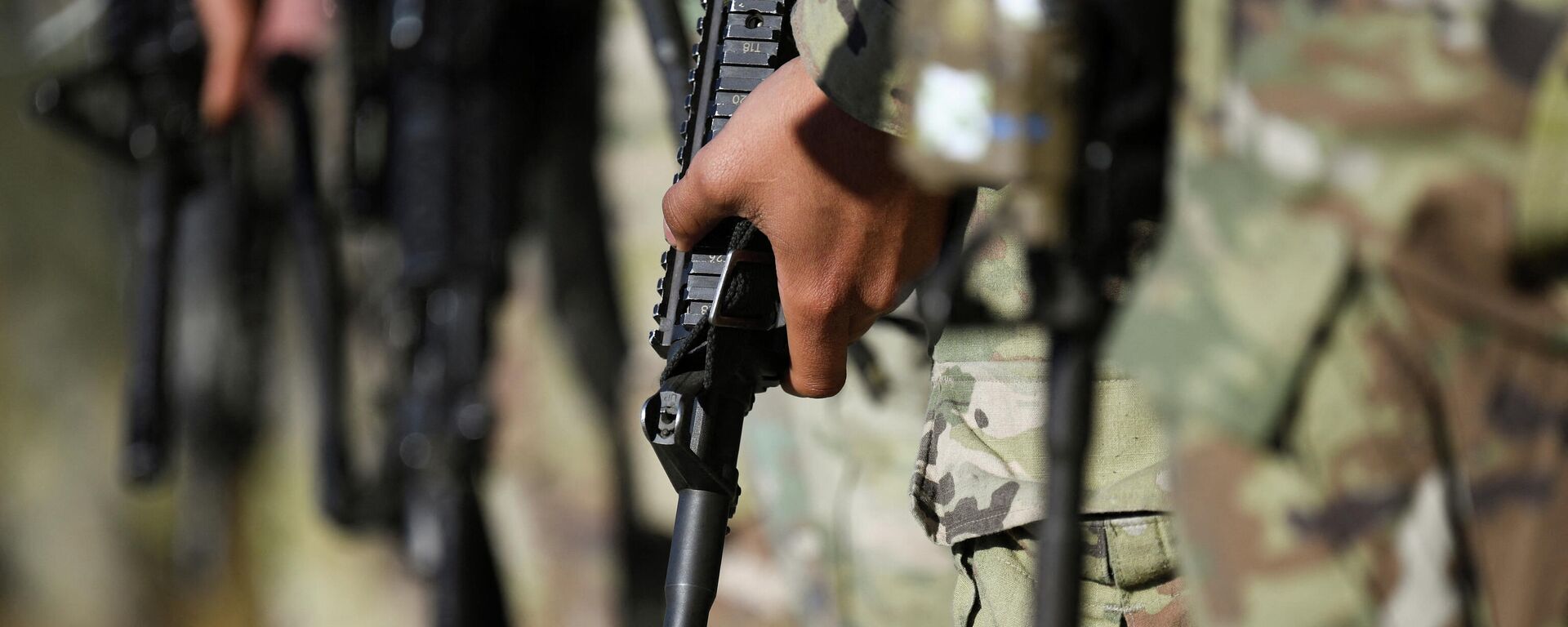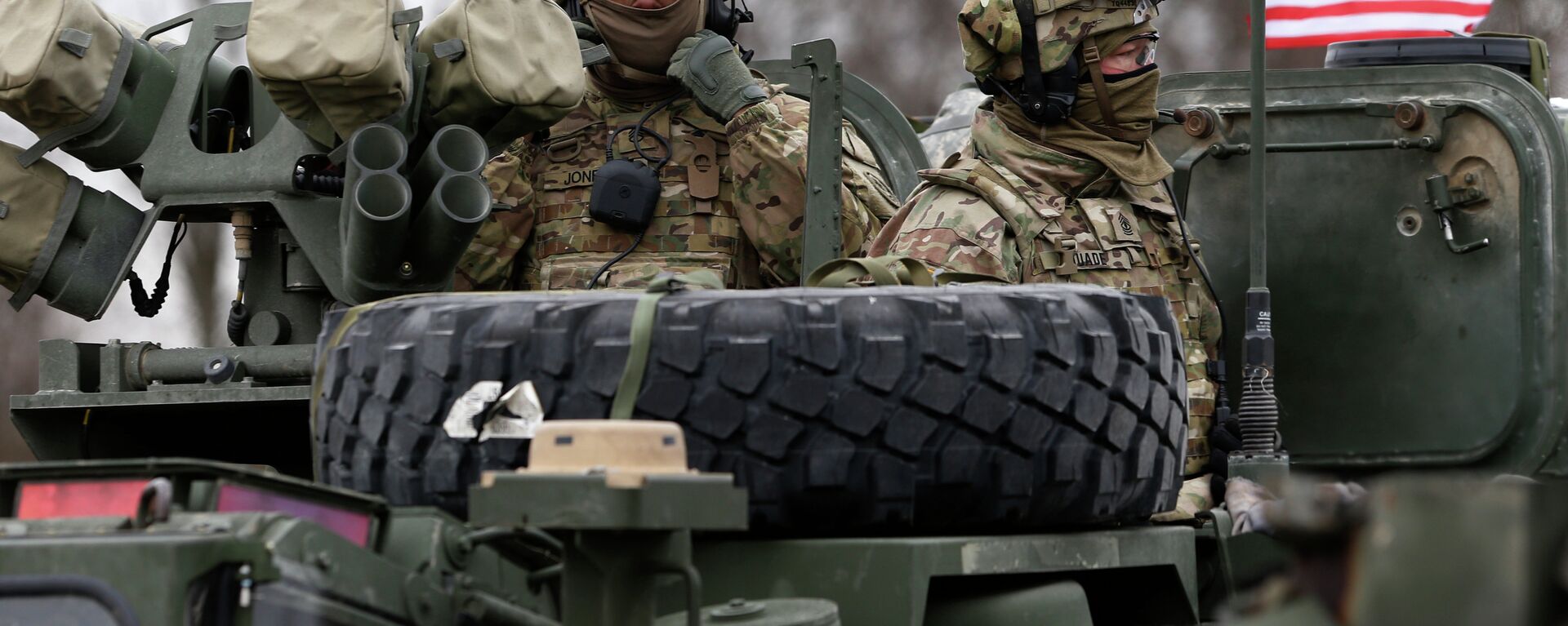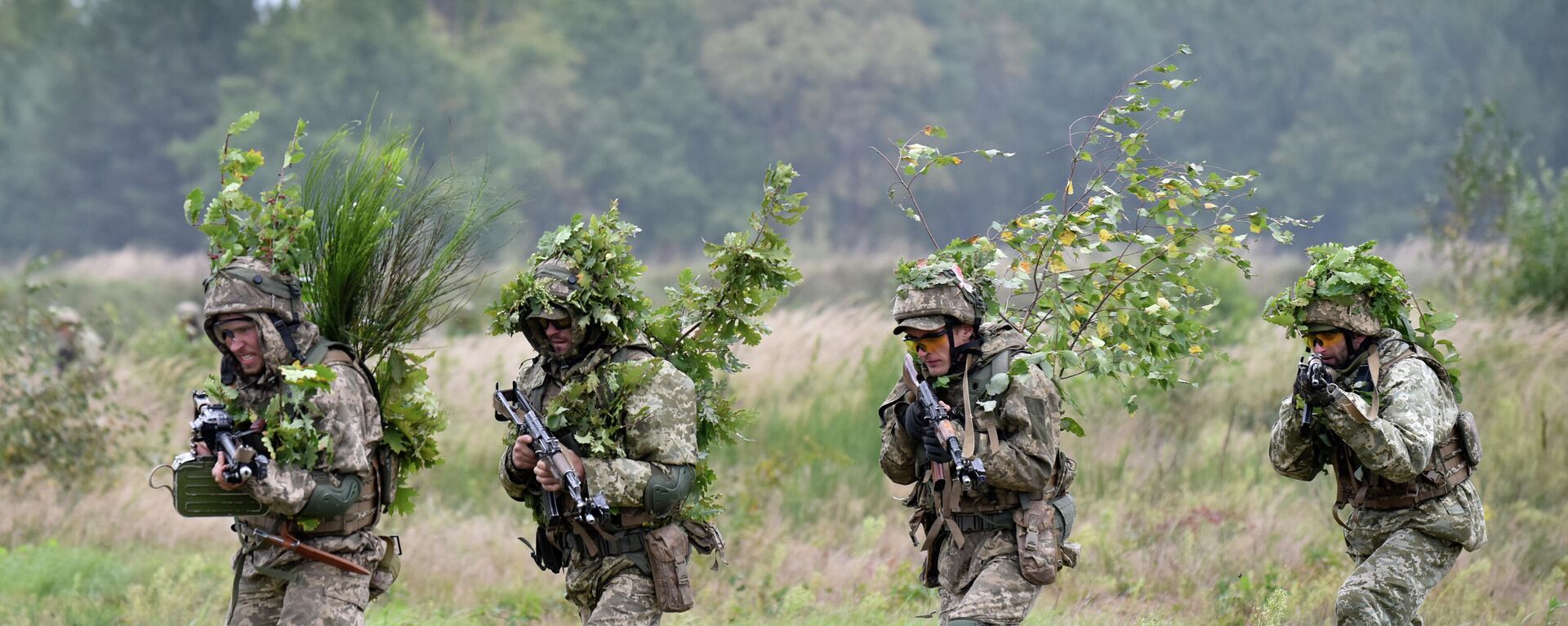Biden's Lend-Lease: US is Going to Sacrifice Ukrainians at Unbelievable Numbers, Observers Say
22:53 GMT 10.05.2022 (Updated: 22:54 GMT 10.05.2022)
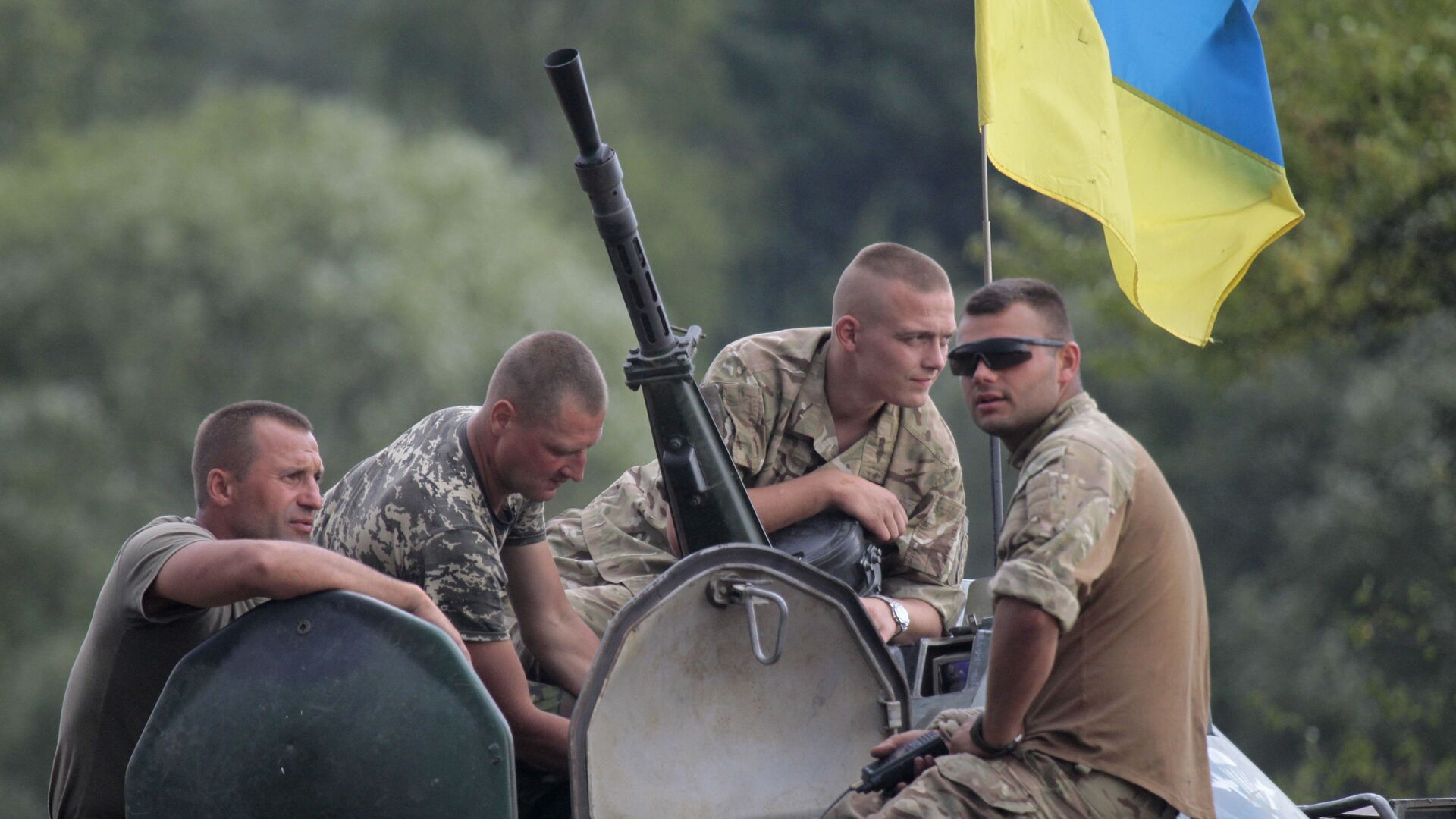
© AP Photo / Efrem Lukatsky
Subscribe
US President Joe Biden signed the Ukraine Democracy Defense Lend-Lease Act of 2022 on 9 May, the same day when Russia was commemorating the 77th anniversary of its victory over Nazi Germany in 1945. The new law will allow Biden to streamline US military aid to Ukraine by eliminating bureaucratic hurdles.
"The stated policy of the United States at this point in time is to create the conditions for a strategic Russian defeat in Ukraine, one of the goals of which is to bleed Russia dry so that Russia can never again carry out an action such as it has undertaken in Ukraine, or anywhere else," says Scott Ritter, a military analyst and former US Marine Corps intelligence officer. "This is the opposite of achieving peace. This is about promoting war. And as such, yes, the lend-lease legislation is not just adding fuel to the fire, it's pouring fuel all over the fire."
Meanwhile, there is additional dark symbolism in the Biden administration's decision to sign the bill on Russia's Victory Day, according to Dr. Matthew Crosston, professor of political science at Austin Peay State University.
"Do not forget the Lend-Lease bill is reviving a form of military aid from the Second World War, where the US was helping the UK fight Germany more readily," the professor says. "Thus, in a way, the US is sending a signal to its own people that Putin is the Hitler-like figure, exactly on the day when Russia celebrates its own victory against the actual Nazis in WWII. It is without doubt a vicious message being sent."
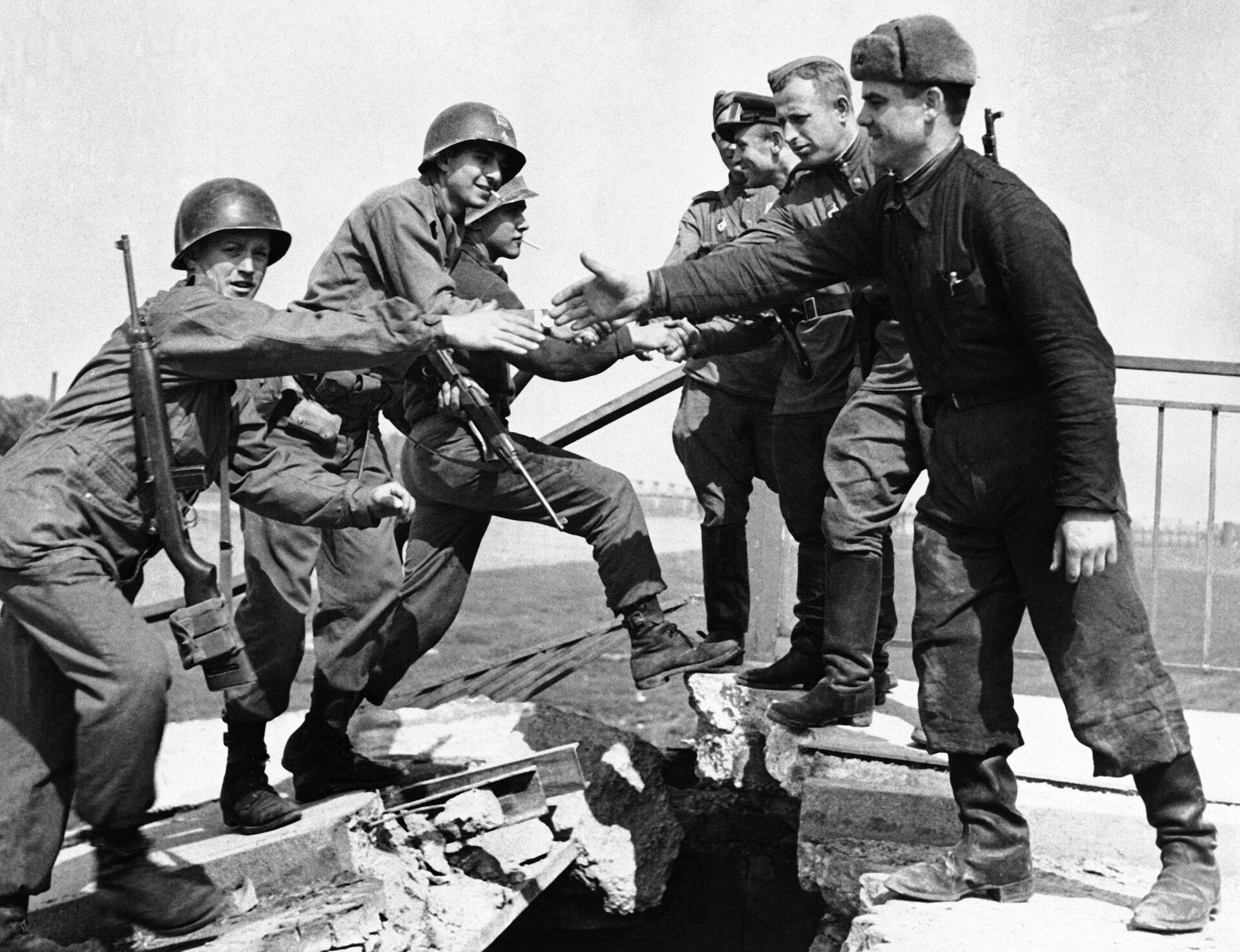
US and Soviet troops shaking hands after meeting up at Torgau on the Elbe river in Germany on 26 April 1945
© AP Photo / Uncredited
The Ukraine Democracy Defense Lend-Lease Act of 2022 was introduced by US Senators John Cornyn (R-TX), Ben Cardin (D-MD), Roger Wicker (R-MS), and Jeanne Shaheen (D-NH) on 19 January 2022. The introduction of the legislation occurred a week before Washington gave its official response to Moscow's draft security agreement and over a month before the start of the Russian special military operation in Ukraine.
Ritter believes that US lawmakers came up with the bill out of fear of an attack from Moscow following the Western media reports about an "imminent Russian invasion" of Ukraine circulating since November-December 2021.
However, by December 2021, Kiev had amassed considerable forces along the line of contact with the Donetsk and Lugansk People's Republics. The crux of the matter is that Kiev was preparing its own full-fledged offensive against Donbass scheduled for March 2022, which Russia managed to upend, states the Russian Ministry of Defence (MoD), citing Ukrainian documents obtained during the special military operation. Dmitry Polyansky, Russia's first deputy representative to the UN, told Sky News on 9 May that the trove obtained by the MoD indicates that there were also plans to strike Russia from the territory of Ukraine.
"I believe that it has been entirely counterproductive for the US to provide any lethal military assistance to Ukraine during the past two and a half years, so the unanimous US Senate passage of this Ukraine Lend-Lease bill is unfortunate to me," says David T. Pyne, an EMP Task Force scholar and former U.S. Department of Defenсe officer. "I believe the US escalation of its undeclared war against Russia in Ukraine has been a very dangerous and risky policy for the US to pursue and just goes to add fuel to the fire."
US is Forcing Allies to Step Up Military Aid to Ukraine
On 9 May, Biden also announced that the US has almost exhausted its resources and said Washington could be forced to halt its military aid to Ukraine in about 10 days if Congress does not approve his request for an additional $33 billion in security, economic and humanitarian assistance to Kiev.
Even though skyrocketing inflation and soaring gas prices are creating economic difficulties for US households, it is unlikely that the American public is ready to oppose Washington's pouring money into the conflict, according to the observers.
"No one can expect any kind of pressure from the American people to seek an end to the conflict," deems Crosston. "Remember, the American taxpayer is used to a military budget of 800 billion-plus dollars a year."
Nevertheless, the US leadership does not want to carry the whole burden of its proxy effort against Russia alone, according to Ritter. He notes that the United States is "putting a full-court press on its NATO allies to increase the scope and scale of its military assistance programmes to Ukraine."
The lend-lease legislation sets a precedent that "if the United States is able to transform this legislative act into meaningful provision of weaponry to Ukraine, that this will provide leadership by example, and that the West will follow suit," the military expert explains.
However, the only goal of transforming a new Ukrainian military under the programme is making it capable of killing Russians on a larger scale, according to the former US Marine Corps intelligence officer.
"It's clear that the United States and NATO do not care about Ukrainian soldiers," he says. "[The US] is willing to sacrifice them at unbelievable numbers."
Still, the US-NATO will continue arms deliveries to Kiev only if Ukrainian forces keep fighting, according to Ritter.
"If Russia, for instance, is able to achieve some sort of demonstrable battlefield victory of such a large scale that the inevitable defeat of Ukraine is played before the European community, that would put a damper on, I think, the provision of weaponry in a futile exercise," the military expert says. "But if the Ukrainian military is able to continue to resist, then I think you'll see people being willing to provide more and more weaponry to the Ukrainians."
Peace in Ukraine is in US National Interests
Western leaders are deluding themselves if they believe Russia’s Ukraine operation was not provoked, says David T. Pyne.
He particularly refers to the 2008 Bucharest Declaration in which NATO stated Ukraine and Georgia would be allowed to join NATO eventually; the US-backed Euromaidan coup in February 2014 against Ukrainian President Viktor Yanukovych; the provision of lethal military aid to Ukraine beginning in December 2019 to the present; NATO-Ukrainian joint military exercises and training of the Ukrainian Armed Forces.
"The US signing of a strategic partnership agreement with Ukraine in November 2021 committing the US to support Ukrainian membership not only in the EU but in NATO as well was also very provocative," says Pyne. "Finally, the US refusal to negotiate Russia’s proposed mutual security agreement, most of the provisions of which were in the US national security interests to agree to and implement, was a huge, missed opportunity for peace."
The problem is that the US national security interest is not to prolong the war in Ukraine, as Biden's lend-lease bill does, but rather to incentivise both Ukraine and Russia to negotiate a compromise peace agreement to end the war as soon as possible, argues Pyne.
"Biden and members of Congress claim to want to stop the deaths of civilians in Ukraine, even going so far as to claim Russia is guilty of genocide without any evidence to support their claims, but their policy to prolong the war as long as possible will serve to greatly increase the death and destruction in Ukraine," the former Pentagon official concludes.

